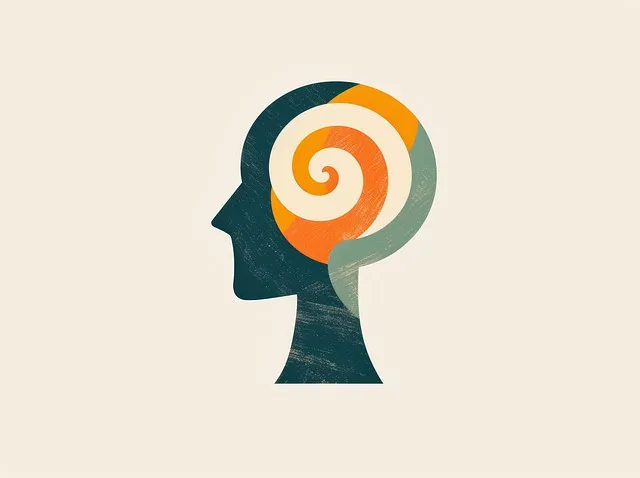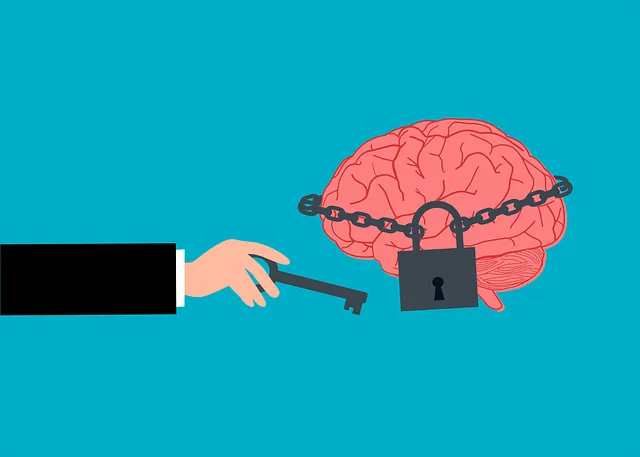Self-assessment tools are crucial for modern mental health care, empowering individuals to take charge of their emotional well-being. These tools, driven by a trend towards personalized healthcare and Mood Management initiatives, complement professional support from centers like the Littleton Kaiser Permanente mental health appointment center. By encouraging self-reflection, early issue identification, and effective interventions, they bridge the gap between professional care and individual autonomy. The Littleton Kaiser Permanente center offers specialized services, including comprehensive assessments and personalized treatment plans, fostering resilience and holistic care. Effective self-assessment tools for mental wellness should incorporate techniques like Self-Awareness Exercises and Stress Reduction Methods, be user-friendly, and integrate digital technology for accessible tracking and coaching. Rigorous testing ensures these tools are reliable and culturally sensitive, with continuous updates based on feedback and research to maintain their effectiveness.
Mental wellness self-assessment tools play a pivotal role in proactive mental healthcare. As recognized by the Littleton Kaiser Permanente Mental Health Appointment Center, these tools democratize access to assessment, enabling individuals to take charge of their mental well-being. This article explores the evolution and development of such tools, focusing on strategies employed by leading institutions like the Littleton Kaiser Permanente center. We delve into designing effective assessments, integrating technology for accessibility, and implementing continuous improvement strategies for personalized mental health monitoring.
- Understanding the Need for Self-Assessment Tools in Mental Health Care
- The Role of Littleton Kaiser Permanente Mental Health Appointment Center
- Designing Effective Self-Assessment Tools for Mental Wellness
- Integrating Technology for Accessible and Personalized Mental Health Monitoring
- Testing, Implementation, and Continuous Improvement Strategies
Understanding the Need for Self-Assessment Tools in Mental Health Care

In today’s fast-paced world, self-assessment tools play a pivotal role in mental health care, offering individuals a means to actively participate in their emotional healing processes. These tools empower people to take charge of their mental wellness, complementing the expert support provided by institutions like Littleton Kaiser Permanente mental health appointment centers. By encouraging self-reflection and monitoring progress, these assessments can facilitate earlier identification of mental health issues, enhancing the effectiveness of interventions.
The development of robust self-assessment tools is not merely a matter of personal interest but reflects a broader Mental Health Policy Analysis and Advocacy trend. They bridge the gap between professional care and individual autonomy, supporting Mood Management initiatives by providing accessible resources for emotional well-being. This approach aligns with the growing recognition of the importance of preventive measures in addressing mental health challenges, fostering a holistic understanding of wellness that goes beyond traditional therapy sessions.
The Role of Littleton Kaiser Permanente Mental Health Appointment Center

The Littleton Kaiser Permanente Mental Health Appointment Center plays a pivotal role in promoting mental wellness within the community. This specialized center offers a range of services designed to support individuals struggling with various mental health challenges. By providing a safe and supportive environment, it facilitates access to expert clinical care, ensuring that patients receive personalized treatment plans. The center’s team of qualified professionals is dedicated to helping clients develop effective coping strategies, enhance their positive thinking, and improve overall mood management skills.
Through regular appointments and comprehensive assessments, the Littleton Kaiser Permanente Mental Health Appointment Center enables individuals to take control of their mental health journey. It equips them with tools and resources necessary for maintaining well-being and fostering a sense of resilience. The center’s holistic approach emphasizes the interconnectedness of mental, emotional, and physical health, ensuring that patients receive integrated care tailored to their unique needs.
Designing Effective Self-Assessment Tools for Mental Wellness

Designing effective self-assessment tools for mental wellness is a meticulous process that involves creating resources tailored to individual needs. These tools, akin to those offered at the Littleton Kaiser Permanente mental health appointment center, should promote self-reflection and encourage individuals to take charge of their mental well-being. Incorporating various techniques like Self-Awareness Exercises can help users identify emotional triggers, understand their thought patterns, and recognize early signs of stress or distress.
For optimal effectiveness, these assessments should be comprehensive yet user-friendly. They must go beyond simply identifying symptoms by offering actionable insights and practical Stress Reduction Methods. By integrating Risk Management Planning for Mental Health Professionals into these tools, users can gain strategies to mitigate risks, improve coping mechanisms, and enhance overall resilience, thereby fostering a holistic approach to mental wellness management.
Integrating Technology for Accessible and Personalized Mental Health Monitoring

In today’s digital age, integrating technology has become a game-changer in accessible and personalized mental health monitoring. The Littleton Kaiser Permanente mental health appointment center has pioneered this shift by leveraging digital tools to enhance patient care. Apps designed for mental wellness coaching programs development offer users a convenient way to track their mood, receive tailored recommendations for stress reduction methods, and even schedule virtual appointments, all from the comfort of their homes. These innovations are particularly beneficial for individuals who may face barriers in attending traditional mental health appointment centers due to geographical constraints or personal preferences.
By combining advanced algorithms with artificial intelligence, these digital platforms can provide personalized insights into one’s mental wellness status. They offer depression prevention strategies tailored to individual needs, ensuring that users receive the support they require. The use of technology not only makes mental health monitoring more accessible but also encourages regular check-ins and proactive care, potentially preventing more severe issues from arising. This approach aligns with the broader trend of personalized healthcare, where digital tools empower individuals to take a more active role in managing their mental wellness.
Testing, Implementation, and Continuous Improvement Strategies

Testing plays a pivotal role in the development process as it ensures the self-assessment tools are both effective and reliable. The team at Littleton Kaiser Permanente Mental Health Appointment Center employs rigorous evaluation methods, utilizing various techniques such as pilot testing with diverse participant groups to identify potential biases or usability issues. This iterative process involves feedback from mental health professionals and individuals representing the target population, ensuring cultural sensitivity and relevance. By integrating this feedback, the tools can cater to a broader spectrum of users, enhancing their overall effectiveness.
Implementation strategies are tailored to make these self-assessment tools accessible and engaging for various audiences. The center leverages digital platforms and mobile applications, considering the growing trend in remote mental health services. This approach, coupled with user-friendly interfaces, allows individuals to access assessments conveniently, fostering a more inclusive Mental Health Awareness environment. Moreover, incorporating Compassion Cultivation Practices and Coping Skills Development modules within these tools can significantly enhance users’ well-being. Continuous improvement is an ongoing process, where regular updates based on user feedback and emerging research ensure the tools remain relevant and aligned with best practices in mental health care.
The development of mental wellness self-assessment tools is a significant step towards empowering individuals to take charge of their mental health. As highlighted by the expertise at the Littleton Kaiser Permanente Mental Health Appointment Center, these tools play a pivotal role in early detection and personalized care. By integrating technology and employing effective design strategies, we can enhance accessibility and create tailored monitoring solutions. Continuous improvement through testing and implementation ensures that these tools remain relevant and beneficial in today’s mental health landscape.






